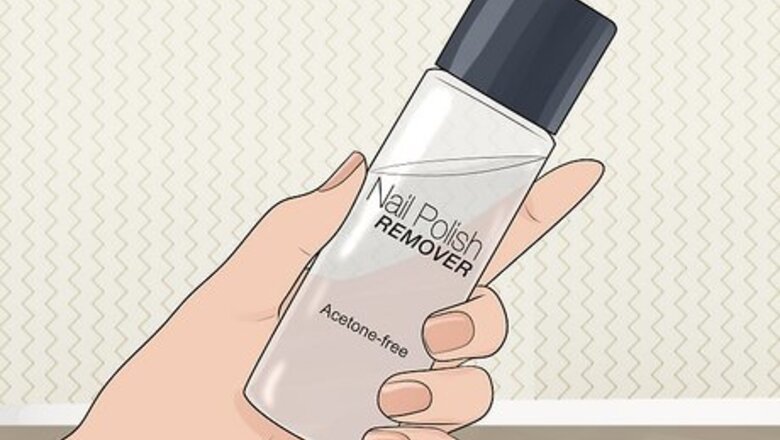
views
- Keep your nails out of water whenever possible and avoid using harsh chemicals on them to prevent damage and breakage.
- Stay on top of your nail health by applying a cuticle oil regularly and never skipping a base and top coat during a manicure.
- Take a break from gel and acrylic nails to help restore and preserve your natural nail.
Use gentle products on your nails.
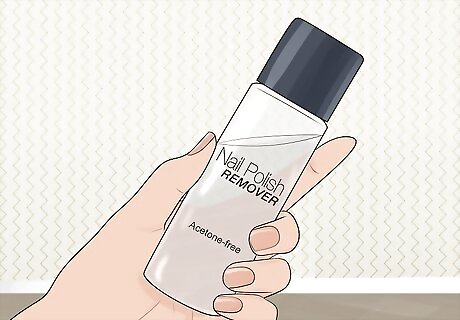
Protect your natural nails by avoiding harsh chemicals. Believe it or not, the products you use on your hands and nails can greatly impact your nail health. Opt for chemical-free lotions and acetone-free nail polish removers, as these won’t break down your nails’ natural barrier.
Keep your nails out of water.
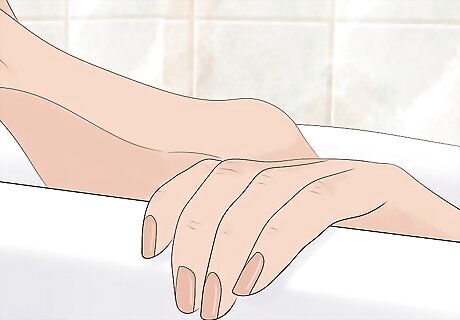
The longer your nails are in water, the more brittle they become. Avoid soaking your nails in water for extended amounts of time. Water softens the nail and makes it weak and flexible, causing it to bend or break easily.Take shorter showers or hold your hands out of the bath. Apply a base coat of polish on your nails and trim them down if your nails will be wet for long periods.
Eat a nail-friendly diet.
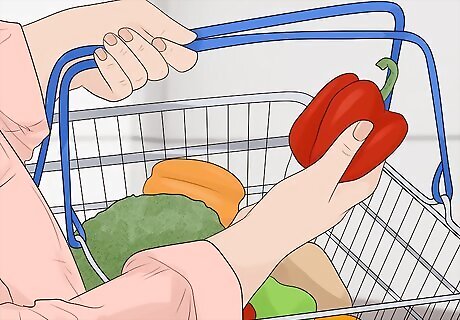
Folic acid, Vitamin A, and Vitamin C can help support nail health. Folic acid (Vitamin B9), Vitamin A, and Vitamin C are natural minerals that can help strengthen your nails. They support your overall health while supplying extra nutrients to your nails, keeping them happy and healthy. Eat dark leafy vegetables, beans, sunflower seeds, and eggs to add more folic acid to your diet. Consume more tomatoes, red bell peppers, mangoes, and milk to get Vitamin A. Take in more citrus fruits, strawberries, broccoli, and white potatoes to get a healthy serving of Vitamin C.
Use cuticle oil or serum regularly.
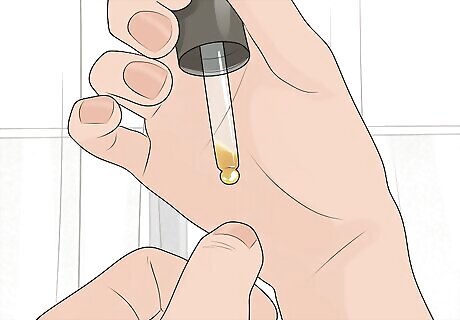
Healthy and hydrated cuticles lead to healthier nails. As Marta Nagorska, a licensed nail technician, says, “it’s important to replenish those oils [in your nails] with cuticle oil.” Apply a cuticle oil or serum to your cuticles (the base of your nails) daily to keep them hydrated. Simply follow the instructions on your chosen product. Avoid trimming or pushing back your cuticles, as this can upset your nails’ natural barrier and cause infections. Marta Nagorska personally recommends using OPI’s cuticle oil for the best results.
Apply a base and top coat.
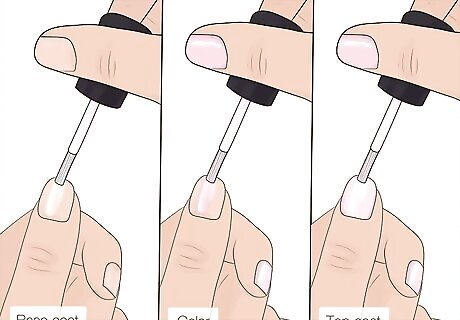
Base and top coats add a protective barrier over your natural nail. Skipping a clear base and top coat could make your nails weaker. Apply a base coat before your colored polish, and finish the manicure with a strengthening top coat. Base coats add a protective layer between your natural nail and the color polish, minimizing the chance of staining. Top coats come in various formulas, from quick-drying to strengthening.
Consume more biotin.
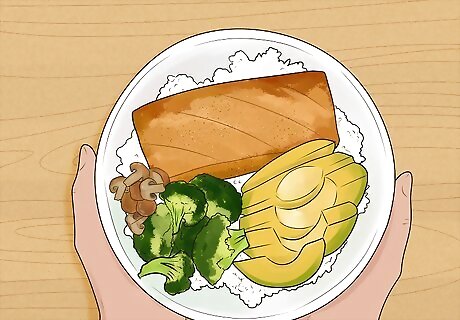
Biotin (Vitamin H) has been proven to promote nail growth and strength. Aim to consume between 30 and 40 micrograms per day either through food or supplements. Whole grains, mushrooms, bananas, salmon, and avocado are all great sources of biotin.
Take a keratin supplement daily.
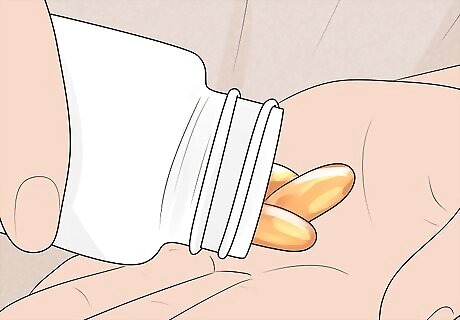
Keratin is a protein that helps strengthen your natural nails. This natural mineral can be found in your hair, nails, and skin and is in charge of protecting and healing wounds. Your body produces keratin naturally, but taking a daily supplement may help promote nail growth and strength. Keratin can be hard to digest, so look for supplements containing soluble keratin or hydrolyzed keratin (meaning it’s digestible for the human body).
Stay away from fake nails.
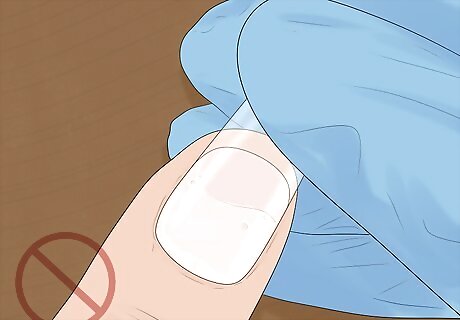
Acrylic and gel nails can weaken the outer layer of your nails. While pretty, fake nails can wear down your nails’ natural barrier, making them weaker and more fragile. Avoid getting fake or acrylic nails when you can. Instead, opt for regular polish. Even the proper removal of fake nails can cause damage. Remember, your nails are the most sensitive when wet. If you want gel or acrylic manicures, try alternating between the two. Get a traditional manicure between your gels or acrylics. Use nail polishes with strengthening properties for extra protection.
Avoid biting or picking at your nails.
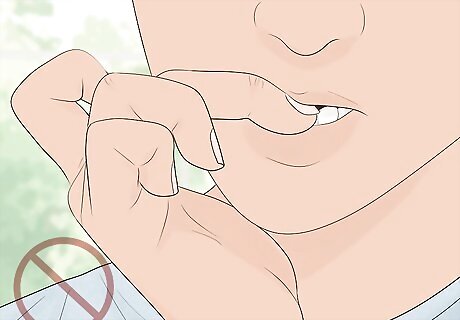
Nail biting can damage your nails and lead to infections. Chewing, biting, or picking your nails may seem like a harmless nervous tick, but it’s anything but. Excess nail biting can cause bacterial skin infections and damage your nails. Try to stop the habit by: Identifying your triggers for when you feel the urge to bite your nails. Chewing gum or playing with a fidget toy. Keeping your nails polished. Applying a bitter-tasting polish.
Avoid using your nails as tools.
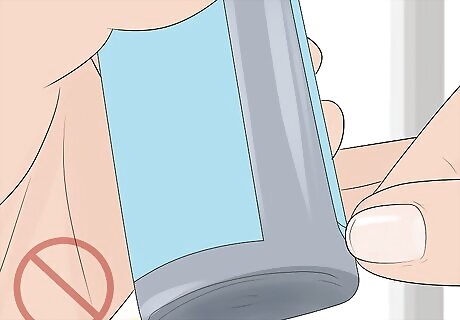
Peeling labels or scraping glue with your nails could cause them to break. You might not even realize you’re doing it, but using your nails as a tool can damage them. Open things like packages with scissors or use a credit card to peel off labels and scrape glue. Expert nail artist Lindsay Yoshitomi agrees that you should “Avoid putting stress on your nails that can lead to breakage. For instance, if you pick off gel nail polish instead of soaking your nails, you're also removing some of the top layers of the nail, which weakens it.” Consider using a nail strengthener or hardener (such as a strengthening polish, cream, or serum) to prevent them from breaking.













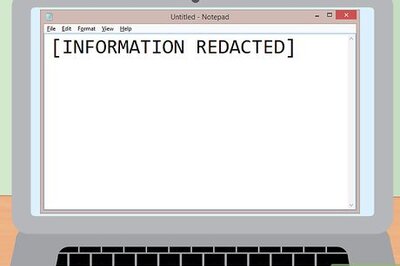
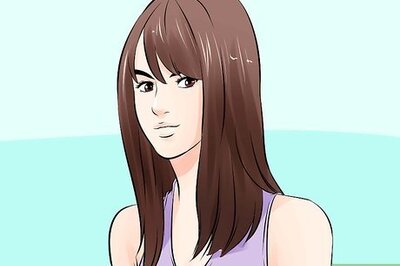

Comments
0 comment